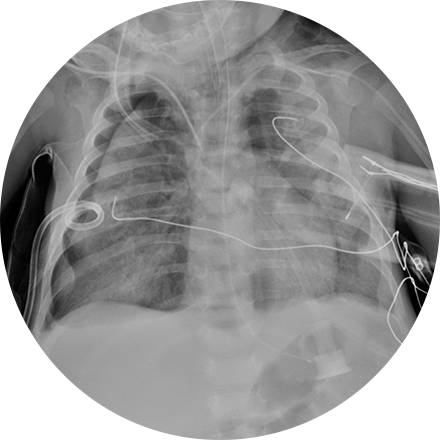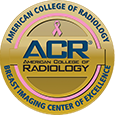
We participate in Image Gently, an initiative from The Alliance for Radiation Safety in Pediatric Imaging that promotes radiation protection for children across all imaging modalities. When your child needs a procedure, you don’t want to have to choose between image quality and risk. We are committed to lowering and limiting dosage in medical imaging and intervention without compromising quality.
We work closely with pediatric specialists to provide comprehensive care for infants, children, and adolescents. In some cases, our procedures may help your child avoid an invasive surgery (and the subsequent long recovery). We understand the unique requirements of growing bodies, and we have both the clinical knowledge and the compassion to support your child’s health.
Pediatric Imaging Options
Nuclear medicine is often used together with CT, ultrasound and MRI to show how well organs and other structures are functioning. Radiotracers are ingested (swallowed, inhaled, injected, or by eating cookies) to illuminate functions in the bones, heart, brain, liver, bladder or kidneys. Nuclear medicine has a very small radiation exposure and has been performed on children for decades with no known side-effects.
Radiologists can diagnose and treat medical illness in children using small instruments such as catheters or tubes. Doctors guide small needles, catheters and other small medical equipment into the body through tiny incisions in the skin. The instruments are used to target and treat diseases, such as tumors and other abnormalities, at their source in the body.
In some cases, these treatments can solve problems faster and with smaller incisions than can other techniques, resulting in less pain and a shorter time to heal. In other cases, they can help treat medical problems that cannot be solved any other way.
The most common organs to be examined using fluoroscopy in children are the gastrointestinal tract (esophagus, stomach, small and large intestines) and the urinary tract (bladder, ureters, urethra). These studies involve contrast and, in some cases, a period of fasting before the exam.
Some Pediatric Imaging Procedures Include:
The most common organs to be examined using fluoroscopy in children are the gastrointestinal tract (esophagus, stomach, small and large intestines) and the urinary tract (bladder, ureters, urethra). These studies involve contrast and, in some cases, a period of fasting before the exam.
Radiologists can diagnose and treat medical illness in children using small instruments such as catheters or tubes. Doctors guide small needles, catheters and other small medical equipment into the body through tiny incisions in the skin. The instruments are used to target and treat diseases, such as tumors and other abnormalities, at their source in the body.
In some cases, these treatments can solve problems faster and with smaller incisions than can other techniques, resulting in less pain and a shorter time to heal. In other cases, they can help treat medical problems that cannot be solved any other way.
Nuclear medicine is often used together with CT, ultrasound and MRI to show how well organs and other structures are functioning. Radiotracers are ingested (swallowed, inhaled, injected, or by eating cookies) to illuminate functions in the bones, heart, brain, liver, bladder or kidneys. Nuclear medicine has a very small radiation exposure and has been performed on children for decades with no known side-effects.








